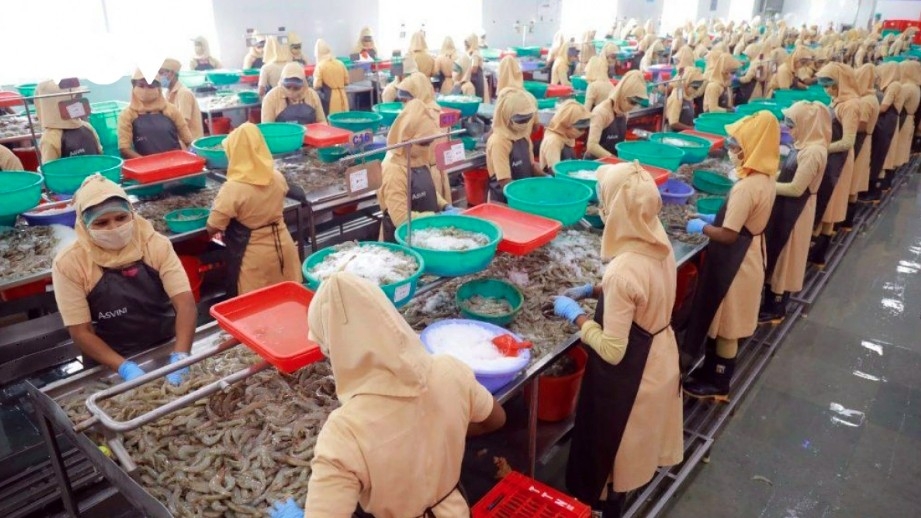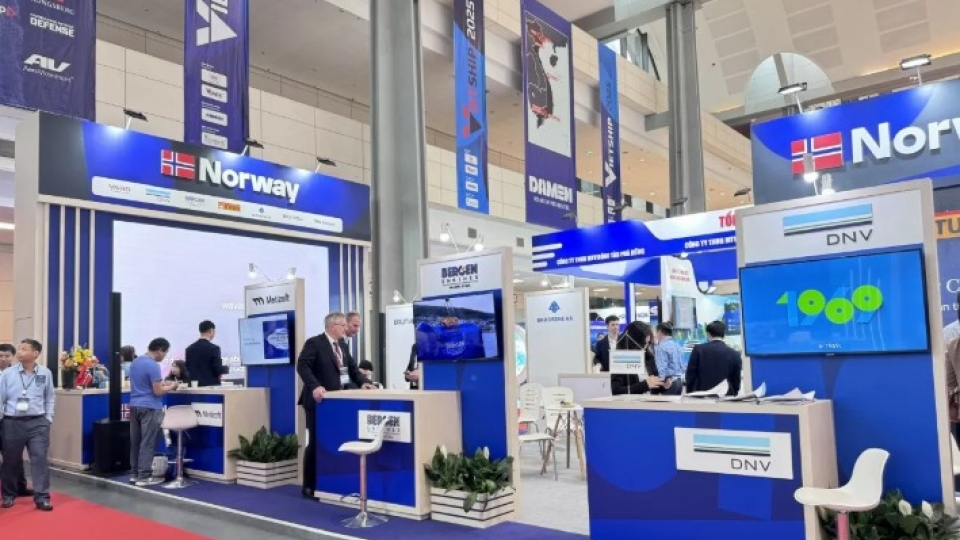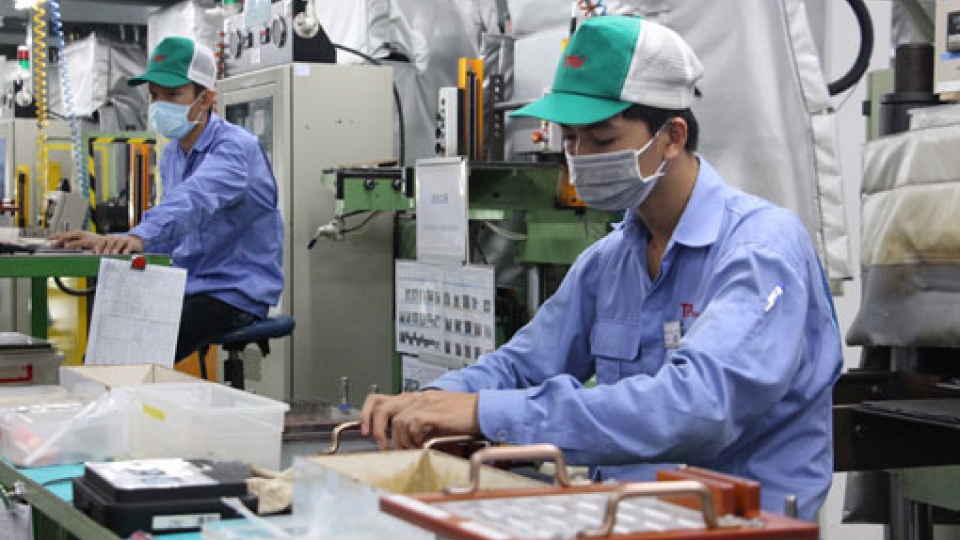Vietnam-EFTA trade deal poised to boost trade, but challenges loom for businesses
VOV.VN - Once in effect, the Vietnam–EFTA (European Free Trade Association) Trade Agreement (FTA) is expected to open up promising export opportunities for Vietnamese businesses, while also setting higher standards for competitiveness, quality, and sustainable development.

The Vietnam-EFTA Free Trade Agreement (FTA), currently being negotiated and prepared for signing, is a pact between Vietnam and the European Free Trade Association (EFTA), which includes Switzerland, Norway, Iceland, and Liechtenstein.
The agreement shares many features with other new-generation FTAs that Vietnam has signed, such as the Comprehensive and Progressive Agreement for Trans-Pacific Partnership (CPTPP), the EU-Vietnam Free Trade Agreement (EVFTA), and the UK-Vietnam Free Trade Agreement (UKVFTA). This similarity is a key advantage, enabling Vietnamese businesses to adapt more quickly and apply their existing experience in fulfilling commitments, refining production processes, and meeting quality standards.
Expanding export opportunities
According to the Ministry of Industry and Trade, two-way trade between Vietnam and the European Free Trade Association (EFTA) currently stands at around US$3 billion per year. However, preliminary projections suggest that once the FTA is signed, total trade volume could reach approximately US$5 billion by 2028. Notably, Vietnam’s exports to EFTA are expected to grow by 10–15% annually in the initial years of the agreement’s implementation.
The ministry notes that one of the clearest advantages of the Vietnam-EFTA FTA lies in its substantial tariff reductions and removal of non-tariff barriers. Under initial negotiation terms, EFTA is set to eliminate 90%-95% of import tariff lines on Vietnamese goods as soon as the agreement takes effect. Lower tariffs and trade costs will significantly enhance the price competitiveness of Vietnamese products, helping them gain deeper access to premium consumer segments across the EFTA market
“While EFTA’s population size is relatively modest compared to other regions, its member countries rank among the world’s highest in terms of income. As such, demand, especially for high-quality products, is substantial,” the Ministry of Industry and Trade noted. “Vietnamese enterprises should take advantage of this market characteristic by focusing on the production and export of premium goods tailored for EFTA consumers.” Sectors expected to benefit most from tariff reductions under the agreement include agriculture (notably coffee, pepper, cashew nuts, and tropical fruits), seafood (such as shrimp, pangasius, and tuna), and fast-moving consumer goods.
The Ministry also underscored another major opportunity presented by the Vietnam–EFTA FTA, including deeper investment cooperation and joint efforts toward sustainable development. As the global economy shifts strongly toward greener practices, Vietnamese businesses are urged to prioritize green production, digital transformation in management, technological innovation, energy efficiency, and carbon emission reduction. Over the next five years, foreign direct investment (FDI) from EFTA countries into Vietnam is projected to reach around US$1 billion, with a focus on high-tech industries, advanced manufacturing, value-added processing, and renewable energy.
In particular, cooperation in clean energy is also expected to see considerable expansion, with total investment in the sector set to reach between US$200 million and US$300 million. This offers a key opportunity for Vietnam to access advanced technology and financial resources to accelerate its green transition and pursue sustainable economic growth.

Stringent technical standards pose major challenge
Alongside the clear advantages in tariff reductions and market access, the Ministry of Industry and Trade warns that joining the Vietnam–EFTA Free Trade Agreement will also mean Vietnamese businesses must meet some of the world’s most rigorous standards on quality, food safety, environmental protection, and labor practices.
EFTA countries maintain one of the strictest technical regulatory systems globally, covering everything from food safety and chemical residue levels to input quality and certifications for sustainable production. Labor conditions, consumer protection, and corporate social responsibility in supply chains are also under close scrutiny—areas where many Vietnamese businesses, especially small and medium-sized enterprises, still struggle with limited awareness and capacity for compliance.
In addition, competitive pressure from foreign rivals is expected to rise sharply. The EFTA region has well-established industries in food processing, high-tech agriculture, and value-added manufacturing. Without serious investment in increasing product value, Vietnamese enterprises may be drawn into price-driven competition, resulting in low profit margins or even losing ground in both export and domestic markets. At the same time, meeting demanding green standards, such as cutting greenhouse gas emissions, using renewable energy, and adopting circular production models will require carefully planned, long-term investments and substantial initial costs during the transition.
To fully seize the opportunities offered by the Vietnam-EFTA Free Trade Agreement, Vietnamese enterprises must begin now to standardize their entire production processes, improve product quality to meet international benchmarks, ensure strict control over input materials, and maintain the highest levels of food safety.
In parallel, developing a transparent traceability system, standardizing certification documents, and securing international certifications on sustainability, labor practices, and environmental compliance are essential steps to building trust with EFTA partners.
In the long term, businesses need to devise comprehensive green transition strategies, incorporating clean technologies, energy efficiency, renewable energy, equipment upgrades, and value-added improvements to their products. Human resources must also be equipped with in-depth training on international technical standards, international law, and integration-oriented management skills.
At the macro level, Vietnam must continue to accelerate administrative reforms, simplify export–import procedures, develop logistics infrastructure, strengthen trade negotiation capacity, and enhance its supporting industries to fully leverage the benefits of new-generation FTAs, including the EFTA agreement.




